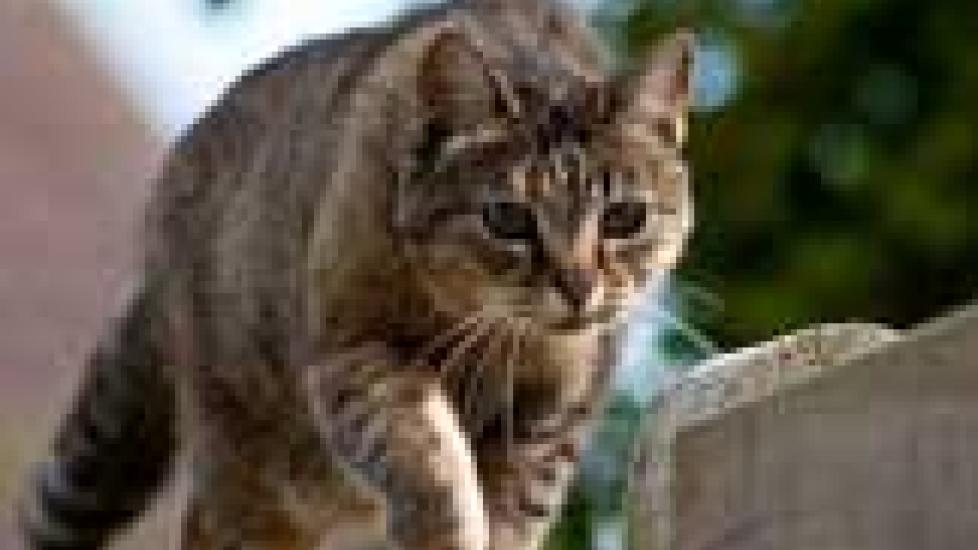Outdoor Cats and Their Impact on the Environment
We talked previously about the kitty cam study conducted by Kerrie Anne Loyd of the University of Georgia. More specifically, we talked about the fact that your cat may not be as safe as you would like to believe when it is outdoors.
In recent weeks, this same study has been re-earthed, producing attention-seeking headlines such as "Kitty Cam Will Expose Your Cat as a Cold-Blooded Murderer," (Mashable) and blatant statements such as "Cats are spending their nights looking for animals to murder." (Huffington Post)
While sensationalistic, these headlines and leading statements are not exactly what the study results concluded. In fact, this is what the study did conclude:
"Results indicate that a minority of roaming cats in Athens (44%) hunt wildlife and that reptiles, mammals and invertebrates constitute the majority of suburban prey. Hunting cats captured an average of 2 items during seven days of roaming. Carolina anoles (small lizards) were the most common prey species followed by Woodland Voles (small mammals). Only one of the vertebrates captured was a non-native species (a House Mouse)." — National Geographic & University of Georgia Kitty Cams Project
As you can see, far from what the sensationalistic headlines would seem to indicate, the real results indicated that not all cats hunted. In fact, fewer than half of the cats in the study actually hunted. For those that did hunt, birds were not their most common prey.
What can we conclude from this?
- Do outdoor cats hunt? Yes, some do. They’re predators, so that’s not unexpected. However, they are also prey for larger predators, which poses a substantial risk for outdoor cats; one risk among many.
- Are outdoor cats systematically wiping out the native wildlife in their environment? I don’t believe this study presents enough solid facts to support that statement.
- Are cats cold-blooded killers? Cats are cats. They’re predators by nature. However, according to this study, fewer than half of the cats studied actually did hunt or kill. Conclude what you will from that.
According to Dr. George Fenwick, president of the American Bird Conservancy, "Cat predation is one of the reasons why one in three American bird species are in decline."
While I believe the decline of these bird species is serious and troubling, I question whether this study supports Dr. Fenwick’s statement. It seems to me that habitat loss from deforestation and urban development is likely a much bigger factor for the decline of many of our bird species. Not to mention the effect that pollution has had on all types of our native species.
One thing that I do believe is worth pointing out is the fact that the cats in this study were owned cats, all of them living within one geographical area. They were not feral or semi-feral. Results from a similar type of study in a feral population of cats, or even in a different location, might reveal strikingly different results. It’s possible that feral cats may be more efficient hunters than their more fortunate owned counterparts. I don’t believe we know the truth about that at this time.
I realize that this is a controversial issue. You’re free to agree or disagree with me. I do believe that pet cats live healthier, longer lives when housed indoors. My own cats are housed indoors and always have been. And that’s not likely to change any time in the near future, because I believe that is what’s best for them. Options such as *catios and leash/harness walking can allow for supervised outings for those cats that do enjoy being outdoors, without subjecting them to the risks of unsupervised outdoor outings.
However, at the same time, I also believe that managed (with the word managed being quite important here) **TNR is an effective means of controlling the feral cat population. I have a difficult time condoning the extermination of feral cats even in the face of knowing that they probably do hunt. Again, I realize this is a controversial issue and many will disagree, some heatedly. That’s okay. Truthfully, I think some of the points made by opponents are valid, although it doesn’t change my position on the subject. For me, it’s like being stuck between a rock and a hard place. There is no perfect solution.
Ideally, all cats would have wonderful forever homes and would be housed indoors. Unfortunately, we don’t live in a perfect world and that scenario is simply not going to happen any time soon. So we have to find solutions that work, and with which we can live, in the imperfect world we do live in.

Dr. Lorie Huston
Image: Sneaking cat by Hans Pama / via Flickr
